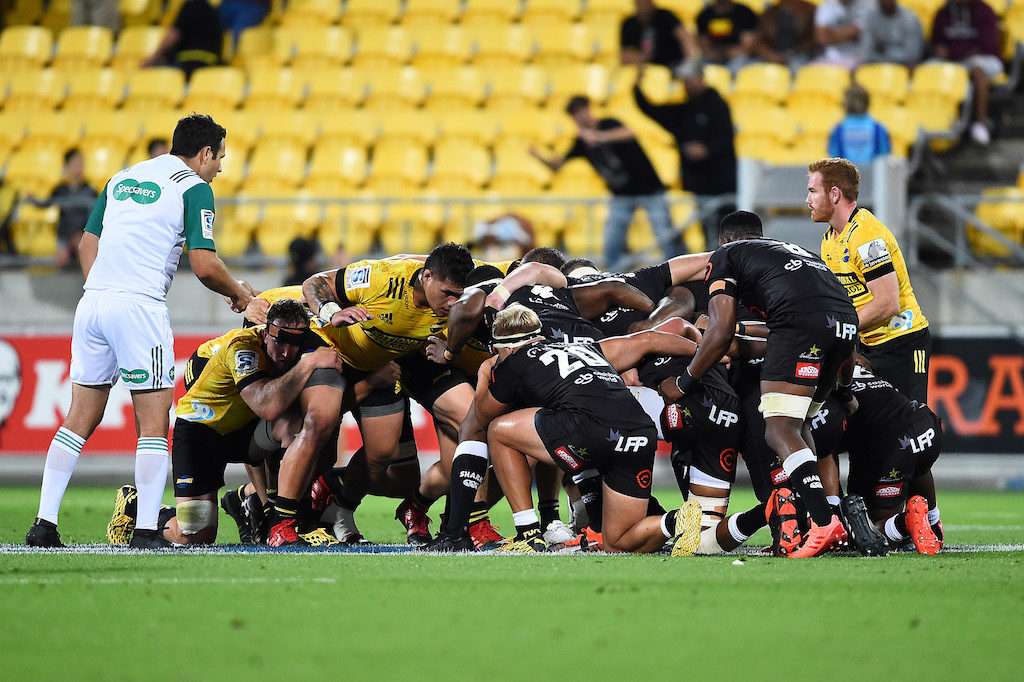Super Rugby Aotearoa has offered compelling moments, but to think New Zealand wouldn’t miss competitive action against South Africa – and vice versa – is wide of the mark, writes CRAIG LEWIS.
Just two rounds of New Zealand’s Aotearoa remain.
The organisers will be well pleased. The action has been highly competitive, filled with top-quality encounters and drawn plenty of interest from fans.
It’s provided a little teaser for New Zealand Rugby, and the interest to head their own way in 2021 has been well documented.
But here’s the kicker: if that ‘new competition’ goes from a short-term fix to a long-term prospect, one has to wonder just how New Zealand Rugby may reflect on that decision in a few years from now.
NZR is keen to include a Pacific Island team, but the finality around this and just what they would add in terms of competitive value remain to be seen.
Australian Rugby seems to have turned up its nose at the offer to put forward an expression of interest to add participants, while New Zealand’s Vodacom Super Rugby review has surely also accelerated South Africa’s interest in finalising a move north.
READ: Everything to gain for SA Rugby
It’s all a waiting game, but Stormers coach John Dobson recently summed it up best when he said the reaction he had received from players was decidedly mixed.
‘The challenge for us, as one Springbok said, is that we don’t necessarily want to chase New Zealand’s style of rugby but we want to play them with our style. We will miss out on that.’
JURIE ROUX: South Africa has not been kicked out of Super Rugby
At the end of the day, New Zealand may be their own biggest fans, and yes, their flair, phase play and speed of movement is something to behold, but it’s battles against South African opposition that have often brought the best out of them.
The ever-expanding Super Rugby product has meant there has been too much of a good thing with match after match between these traditional powerhouses. Yet, a once gaping divide between New Zealand and South African rugby has been drastically closed after the last two years, and matches during the regular Super Rugby season at the start of this year demonstrated that there was little to choose between the teams.
With the pandemic shaking up world rugby as we know it, perhaps there was an element of opportunism to New Zealand conducting its Aratipu review, but they need to also be careful what they wish for.
South Africa knows the value of heading north in terms of reduced travel demands and a time-zone schedule that is far more appealing for broadcasters. Financial strength and plenty of commercial value are also across the equator while, as Sanzaar CEO Andy Marinos has pointed out, South Africa has always been the ‘biggest contributor of eyeballs’ due to its massive rugby-mad audience.
From a purely rugby perspective, both New Zealand and South Africa may be happy to head in different directions, while continuing to tout the possibility of a cross-competition taking place between the leading teams. But the battle between the natural rhythm of New Zealand teams and the bold physical bravado of South African sides would surely be a sad departure from the rugby calendar.
READ: ‘Players split over SA rugby future’
Photo: Elias Rodriguez/Getty Images





